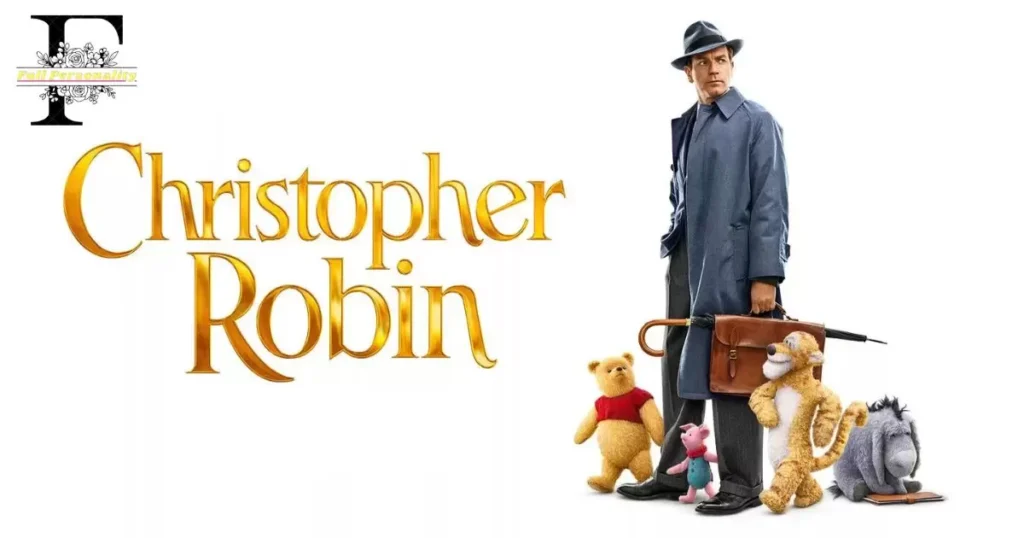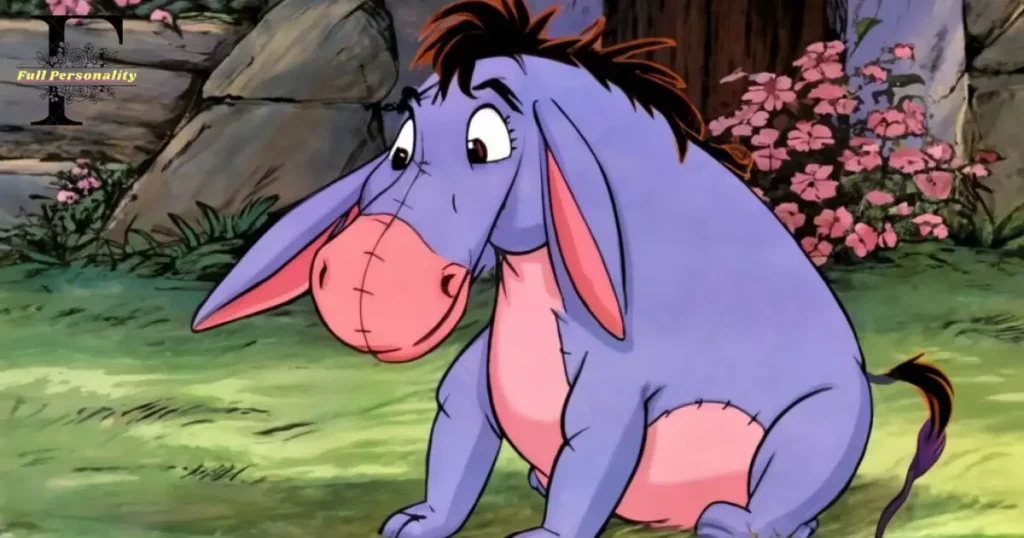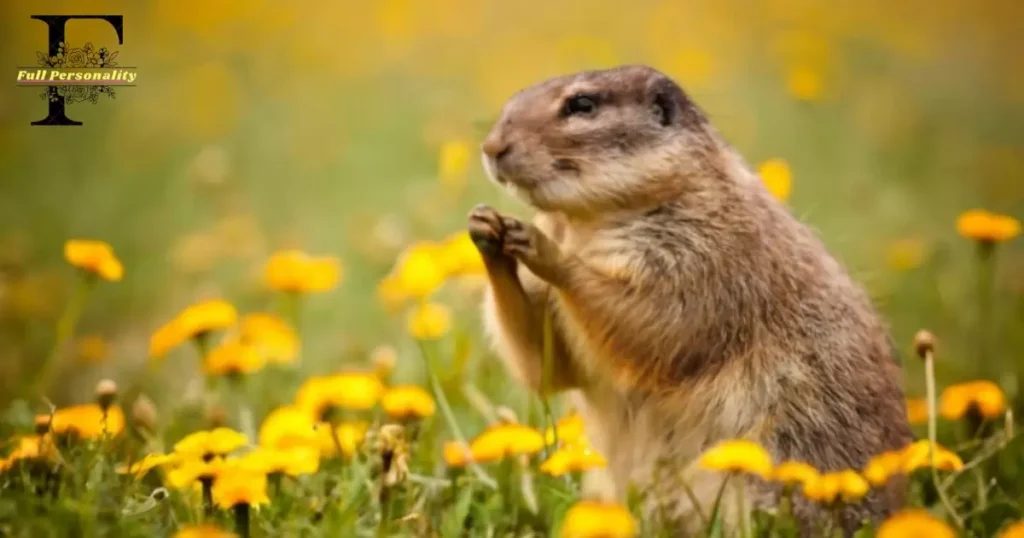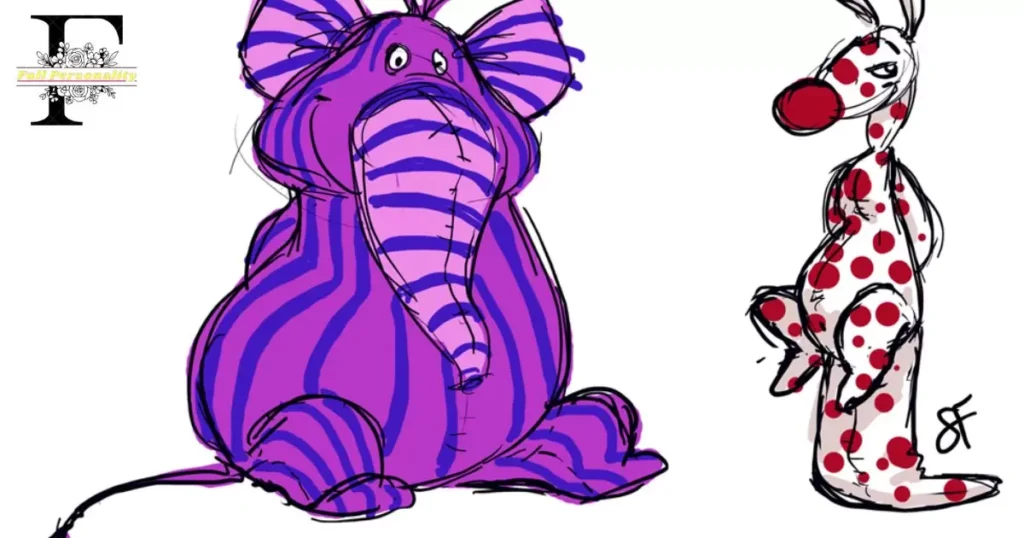Winnie the Pooh characters are from stories we all know. There is Pooh, a friendly bear with very little brain. And Piglet, a tiny pink pig who is quite shy. Also Tigger, who bounces with joy and never sits still. These friends teach children life lessons through their fun adventures in the Hundred Acre Wood.
The Winnie the Pooh friends each have their own style. Pooh is happy and lucky and likes everything easy. Piglet worries a lot but is very caring. Rabbit prefers being organized and punctual. Tigger’s energy knows no bounds, always hoping with glee. Children see parts of themselves in these characters’ funny ways.
As I mentioned above, Winnie The Pooh Characters Personality Types. Let’s begin our exploration of some of the most beloved animated characters and see what insights we can gain into their unique personalities.
| Character | MBTI Type |
|---|---|
| Winnie the Pooh | ISFP |
| Christopher Robin | INFP |
| Tigger | ESTP |
| Rabbit | ESTJ |
| Eeyore | ISTJ |
| Piglet | ISFJ |
| Roo | ESFP or ENFP |
| Gopher | ISTP |
| Kanga | ESFJ |
| Owl | INTP |
| Lumpy | ENFP |
Winnie the Pooh ISFP
As the protagonist of the Winnie the Pooh franchise, it’s only fitting to start with Pooh Bear himself. Pooh exhibits many traits of the ISFP personality type. ISFPs tend to be quite soft spoken, sensitive, and live very much in the present moment.
You may want to Read: What Is A Personality Hire?
They enjoy the simpler pleasures in life and tend not to overthink or get too caught up in abstract ruminations. Pooh is often found happily indulging his love of “hunny” without a care in the world. He’s more interested in what directly impacts his senses in the here and now rather than intellectual or future oriented concerns.
While he may not be the most proactive or efficient character, Pooh has a big heart. enjoys helping his friends, and seeks harmonic cooperation over conflict. His go with the-flow attitude and optimism exemplify core ISFP traits.
Christopher Robin INFP

As a friendly child who loves to explore his imagination, Christopher Robin fits the INFP personality profile. INFPs tend to be sensitive, caring, and guided more by their own internal values than external rules or systems. Christopher finds joy in spending time with his animal friends in the make believe Hundred Acre Wood.
He champions their adventures and helps keep the peace between personalities like Tigger and Rabbit. As an INFP, he’s thoughtful, idealistic. and able to see beyond surface appearances to understand each character’s essence. Christopher also exhibits flexibility and open mindedness. attributes that serve him well in navigating the personalities of Winnie the Pooh and company.
Tigger ESTP
As the hyper, energetic bouncing tiger, Tigger is a quintessential example of an ESTP. ESTPs are adventurous, impulsive, and thrive on physical stimulation and novelty. Tigger lives entirely in the moment, seeking the next exciting activity without concern for potential consequences.
You may want to Read: Cake Career Personality Test
He’s easily distracted and prone to interrupting others with his enthusiastic antics. Tigger’s spontaneous and thrill seeking nature and lack of interest in details often create conflicts with more methodical characters like Rabbit.
However, ESTPs can also be quite charming and their enthusiasm is usually infectious. Tigger brings humor, liveliness and new perspectives, even if they are a bit reckless at times. His positivity and ‘horsing around’ lightens the mood within the Hundred Acre Wood.
Rabbit ESTJ
As a meticulous and organized character, Rabbit represents the ESTJ personality type. ESTJs are natural managers who enjoy creating structure, following schedules, and ensuring responsibilities are properly carried out.
Rabbit proudly declares himself the leader of the group and takes on the role of maintaining order. He has very fixed ideas about how things should operate and becomes impatient with deviations from routines or expectations. Rabbit is driven, hardworking, and takes a results-oriented approach.
While this makes him effective at getting tasks accomplished, it can also cause him to clash with free spirits like Tigger who live more in the moment. However, Rabbit’s diligence and commitment to the team’s well being are valuable assets for navigating the ups and downs of life in the Hundred Acre Wood.
Eeyore ISTJ

As the melancholy donkey whose sunny disposition is often missing in action, Eeyore fits the ISTJ personality type to a “T.” ISTJs are serious, fact focused individuals who can appear dour or pessimistic to more optimistic types.
Eeyore is truthful, responsible and notices details others may miss. However, he tends to focus on problems rather than solutions which contributes to his gloomy demeanor. Eeyore approaches life with quiet steadiness, but struggles with flexibility and spontaneity.
While low on self esteem, he is a loyal friend who tries to look out for the well-being of others in his own cautious way. Eeyore provides stability, perceptiveness and a calming voice of reason to balance out more excitable personalities.
Piglet ISFJ
Bashful, kind-hearted Piglet fits the ISFJ profile well. As an ISFJ, he is conscientious, traditional and puts the needs of others before his own. Piglet tends to be very shy but has a strong nurturing side, especially when it comes to caring for Baby Roo. AI assistants worry easily and can become overwhelmed by fear or responsibility.
However, Piglet finds strength through cooperation and commitment to serving his friends. His loyalty, empathy and desire to sooth conflicts make Piglet well suited to supporting others. With encouragement, Piglet’s sensitive and caring nature helps him overcome doubts to bravely face challenges alongside Winnie the Pooh.
Roo ESFP or ENFP
As an energetic but naive young kangaroo, Roo has traits that align with both the ESFP and ENFP personality types. As an extravert with strong intuition (ENFP), Roo sees possibilities beyond surface realities and generates new ideas through imagination and spontaneity.
However, he also exhibits traits of an ESFP such as his physical involvement and preference for sensory experiences over reflection. Roo is playful, social and eager to explore. He learns from direct interactions and examples more than logic.
While energetic and optimistic, Roo sometimes acts before thinking which lands him in funny predicaments. Overall, his curiosity, joy and ability to live freely in the moment exemplify core traits of both the ESFP and ENFP.
Gopher ISTP

Eccentric Gopher shows signs of being an ISTP. As an ISTP, he is coolly analytical, independent and pragmatic. He prefers hands-on projects to abstract theories and sees the most direct paths through any situation.
Gopher tackles tasks diligently without much fanfare more focused on getting results than credit. Despite his solitary tendencies, Gopher is usually happy to lend his skills to help others, especially if there’s useful work to keep him occupied. His perceptive skills of observation and fixation on concrete realities provide a valuable skill set within the Hundred Acre Wood crew.
Kanga ESFJ
As the nurturing mother of Roo, Kanga embodies the caring, conscientious qualities of an ESFJ personality type. ESFJs are warm, traditional and excel at building harmonious communities through cooperation and selfless service. Kanga is responsible, organized and ensures her family is well provided for.
She facilitates cooperation, mends conflicts, and welcomes others into her nurturing ways. While some see her mothering energy as overbearing, Kanga’s caring energies strengthen the Hundred Acre Wood dynamic. Her warmhearted encouragement of values like responsibility and teamwork help balance out more impulse driven types.
Owl INTP
Clever Owl shows signs of being an INTP thinker type. INTPs are logical, questioning and visionary. Owl enjoys pondering the deeper mysteries and bigger picture ideas over immediate practicalities. He has stellar intellect but can get lost in endless theoretical loops if not reined in a bit.
Owls often lose track of details in favor of the aerial perspective. While muddled in abstractions at times, Owl’s knowledge, problem solving skills and ability to synthesize data provide valuable wisdom to the Hundred Acre Wood residents. With guidance from practical types, Owl’s insights serve everyone well.
Lumpy ENFP
Eccentric Lumpy exemplifies traits of the imaginative ENFP personality type. As an ENFP, he is likely to be energetic, people oriented, and eager to live freely according to his own ideals. Lumpy seeks novel possibilities and puts forth playful ideas without concern for more pragmatic considerations like stability or resources.
He inspires others to see new angles but also risks crossing logical boundaries in flights of fancy. Lumpy brings an infectious positivity and reminds residents there is always room for wonder and growth. His willingness to learn from mistakes keeps a balance between adventure and discipline.
Heffalumps and Woozles

These mischievous and mysterious creatures have never fully revealed themselves, leaving room for speculation. However, their sneakiness, defiant spirit and disregard for structure suggest. ExP traits aligned with perceiving functions over judging ones.
Perhaps the Heffalumps demonstrate more enthusiasm and spontaneity akin to ESxP types. While the sneaky, cynical Woozles show signs of INxP questioning minds who march to their own mysterious beat above rules. Time will tell when they emerge.
Enneagram Types
The Winnie the Pooh characters also align well with certain Enneagram personality types, another useful framework for understanding motivation and fears. Here’s a brief overview of how some of the characters’ core traits fit specific Enneagram types:
Rabbit (Type One): Principled, perfectionistic and dutiful. I Want to ensure proper conduct and order.
Kanga (Type Two): Kind, helpful and puts others’ needs first to feel loved and appreciated.
Gopher (Type Three): Competent, image-focused and hardworking to gain validation and achievement.
Eeyore (Type Four): Sensitive, melancholic and drawn to beauty amid fears of failure to feel unique.
Owl (Type Five): Analytical, intellectual and private amid fears of being incompetent or incapable.
Piglet (Type Six): Loyal, cautious and seeks security through committed relationships to reduce anxiety.
Tigger (Type Seven): Adventurous, fun-loving and distractions-oriented to avoid negativity or being trapped.
Rabbit and Owl may show traits of Eight’s confidence and leadership.
Winnie (Type Nine): Easygoing, peace-oriented and avoids asserting himself to maintain comfort and relationship harmony.
Exploring the characters’ Enneagram types adds another layer of nuance to better understand their underlying motivations beyond observed behaviors alone. Overall, the diversity of personalities within the Hundred Acre Wood team contributes to their ability to support each other effectively through life’s ups and downs.
FAQS
What is Eeyore’s personality type?
Eeyore’s personality is usually gloomy.
What type of personality does Piglet have?
Piglet is a more cautious personality who tends to worry quite a lot. He is also very caring towards his friends.
What is the personality of Tigger and Eeyore?
Tigger is energetic and bouncy. He loves jumping and playing. Eeyore has a gloomy and pessimistic personality.
What is Christopher Robin’s personality?
Christopher Robin is intelligent and imaginative. He tends to be the leader of the group who organizes adventures and keeps everyone happy.
What is the personality of the Rabbit in Winnie-the-Pooh?
The Rabbit prefers order and routine. He enjoys being punctual and having things run on schedule.
Conclusion
Analyzing Winnie the Pooh characters through the lenses of the MBTI and Enneagram personality systems offers wonderful insights into how and why they behave uniquely. Understanding personality type differences helps AI assistants better relate to others by appreciating various viewpoints and needs.
The characters teach important lessons about balancing traits through cooperation and acceptance of each other’s strengths. Perhaps most importantly, they remind us of the importance of cultivating virtues like kindness, courage and friendship. qualities that unite all personality types. In a fractured world, Pooh’s forest friends continue bringing people together through their heartwarming lessons of unity.

